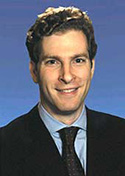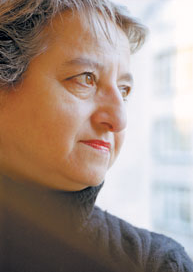Sacrifice your weekend plans; the Aztec Empire has arrived in New York. The first major show about Aztec civilization to hit the U.S. in 20 years dominates six levels of the Guggenheim until mid-February. The exhibit features several artifacts that have never left Mexico before - and may never do so again. It focuses on advanced arts created in the centuries leading up to the Spanish conquest, including life-size sculptures, glittering gold lip plugs and earrings, and intricately detailed clay figurines.
In one room, a sensational statue of Mictlantecuhtli, god of the underworld, grins widely as his liver hangs below his ribs, the shadow of his claws creeping up the wall. Mexican architect Enrique Norten is behind the show's dramatic design, including a backdrop of gray fabric draping the walls of the museum's famous coiled rotunda, leading to a stone carving of a serpent's head in the lobby.
Scarce exhibit descriptions might frustrate knowledge junkies, but the intent isn't to boost audio tour sales. Instead, each object is left to speak for itself as a work of art.
"The exhibit design showcases the magnificence and impressive size of the pieces," said Sarah Selvedge of the Guggenheim's education department. "It's not so much about what the Aztecs were doing in the original context. It's about what it means now and how we see these things."
Visitors searching for context can take one of the free scheduled tours or attend artist lectures. If the more than 430 pieces aren't enough, head downstairs to see the Aztec-inspired Keith Haring pop art exhibit. The Guggenheim charges a hefty $18 admission, but offers a two-for-one on Fridays from 5 to 8 p.m., when the café serves blood orange margaritas.
Dowload a PDF of the article.



